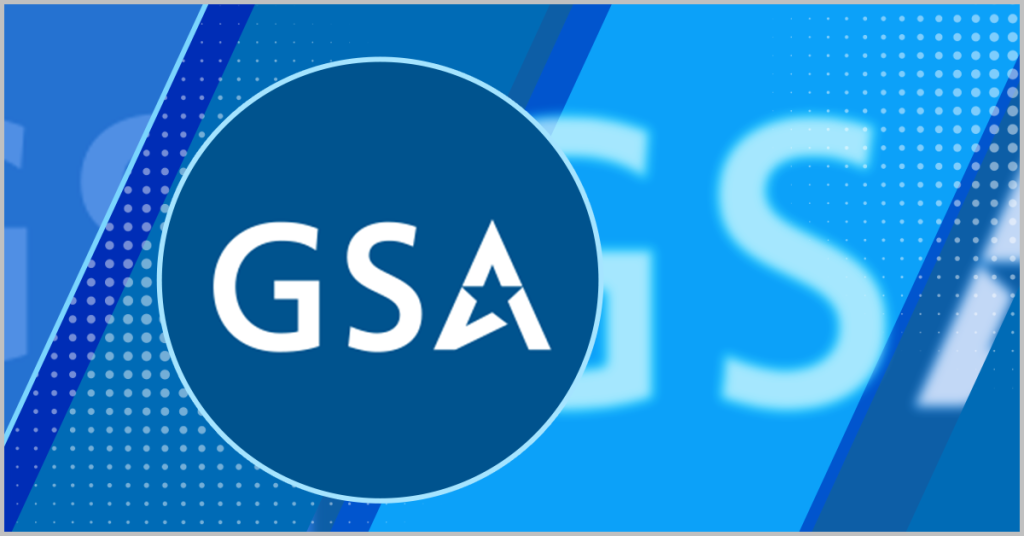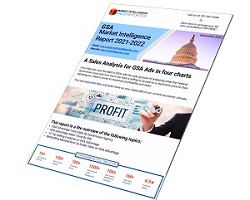What is the GSA?
The GSA, or the General Services administration, serves the purpose of facilitating supply of products and services to US government offices, provides federal employees with transportation and office space, and implements government-wide cost-cutting programs and other administrative activities.
- Who can buy through GSA?
- What type of products and services do government officers buy?
- What can I offer to the various federal agencies, being an authorized GSA vendor?
- How to sell to the government
- Market your schedule
The GSA Multiple Awards Schedule (MAS) Program, commonly known as the Federal Supply Schedule or the Multiple Award Schedule (MAS), is a long-term government-wide contract with commercial businesses, that allows the government to purchase millions of commercial items and services at fair and reasonable costs. By becoming a GSA schedule contractor, one opens up an immense opportunity for growth and development, and gains access to hundreds of GSA customers.
Who can buy through GSA?
All federal agencies, as well as State and municipal governments, including tribal governments and educational institutions described under 40 U.S.C. 502(c), can purchase commercial items and professional services, via the Multiple Awards Schedule (MAS) Program.
What type of products and services do government officers buy?
Many potential GSA Schedule contractors are wondering whether what they do in their respective line of business can be utilized by the government, and what the chances are that the federal procurement officers will actually experience the need for their products or services in the near future.
It is assuring to know that GSA customers come from a wide variety of segments and that the GSA marketplace is basically a reflection of the commercial market, with regards to the type of commodities and professional services that are offered.
What can I offer to the various federal agencies, being an authorized GSA vendor?
As we mentioned previously, the federal buyers are out to procure a huge variety of products and services. Government ‘s needs are basically the same as those of the buyers in the commercial sector.
In other words, anything that is purchased by companies or individuals for their abundant needs, gets offered and sold through the GSA marketplace, as well. Be it food catering, personal fitness training, logistics and trucking, IT and finance, construction and engineering, restaurant or office supply, furniture and building maintenance, and endless other fields; the federal agencies need it all…
Below is an excerpt from a gov’t online source, listing all the main categories and their pertinent subdivisions on the GSA marketplace:
Facilities
Facilities Maintenance and Repair
Facilities Services
Facilities Solutions
Facilities Supplies
Food Service Equipment
Structures
Human Capital
Background Investigations
Compensation and Benefits
Human Resources
Social Services
Information Technology
Electronic Commerce
IT Hardware
IT Services
IT Software
IT Solutions
IT Training
Telecommunications
Office Management
Audio Visual Products
Audio Visual Services
Document Services
Mail Management
Media Products
Media Services
Office Management Maintenance and Repair
Office Services
Office Supplies
Printing and Photographic Equipment
Records Management
Scientific Management and Solutions
Laboratory Animals
Laboratory Equipment
Medical Equipment
Scientific Services
Search and Navigation
Testing and Analysis
Transportation and Logistics Services
Automotive Body Maintenance and Repair
Motor Vehicles (non-Combat)
Package Delivery
Packaging Services
Transportation of Things
Furniture & Furnishings
Fitness Solutions
Flooring
Furniture Services
Healthcare Furniture
Household, Dormitory & Quarters Furniture
Miscellaneous Furniture
Office Furniture
Packaged Furniture
Signs
Industrial Products and Services
Cleaning Supplies
Fire/Rescue/Safety/Environmental Protection Equipment
Fuel Management
Hardware and Tools
Industrial Products
Industrial Products and Services Maintenance and Repair
Machinery and Components
Packaging
Test and Measurement Supplies
Miscellaneous
Apparel
Awards
Complementary Special Item Numbers (SINs)
Flags
Musical Instruments
Personal Hair Care Items
Professional Services
for more information, visit: www.gsa.gov/masprofessionalservices
Business Administrative Services
Environmental Services
Financial Services
Identity Protection Services
Language Services
Legal Services
Logistical Services
Marketing and Public Relations
Technical and Engineering Services (non- IT)
Training
Security and Protection
Marine and Harbor
Protective Equipment
Security Animals and Related Services
Security Services
Security Systems
Testing Equipment
Travel
Employee Relocation
Lodging
Travel Agent and Miscellaneous Services
How to sell to the government
As one can see, the above listings are pretty much all-encompassing, and so almost anyone would have something that would fall into at least one category, and perhaps more. Now, as far as the potential selling volumes, current demands for certain segments over the others; this is a part of the strategical approach a vendor would have to adopt, in order to actually be successful.
Obviously, everyone wants to be able to sell more, at the highest profit margins possible, and so naturally, that is when competition kicks in. Unless a vendor offers something truly unique, there will be other companies on the GSA marketplace doing something similar, and perhaps exactly the same. This is why one constantly needs to keep on their toes and watch out for what the competitors are up to.
Just like in the commercial sector, one needs to be sharp and diligent, when pricing their products or services, describe them clearly and accurately, in order to enable GSA customers to search for them easily and conveniently. Once again, the crucial point to mention over and over, is that pricing will be one of the decisive, if not the single most important factor, for the buyers when making their purchasing decisions.
The good news is that there are tools and methods available within the Multiple Awards Schedule (MAS) Program , for the vendors to utilize in their quest to be more competitive. When it comes to products vs. services, products are easier to search up within the publicly accessible data that contains all the items being offered on the GSA, within every category. The criteria utilized includes part numbers, SKUs, descriptions, manufacturer, sellers’ and buyers’ info, date and volume for each particular transaction. Vendors are strongly encouraged to perform such research and analysis, in order to stay on the edge and ensure a decent sales flow.
When it comes to products, things work a bit different; since services are often described uniquely by individual vendors, and do not have SKUs and part numbers assigned to them, they are more difficult to compile into a workable, concise intelligence report. Moreover, it is customary for services to be obtained by federal buyers through what is called the eBuy portal. The eBuy is a type of GSA’s procurement vehicle, where solicitations are constantly posted by the purchasing agencies via RFI (Request for Information), RFP (Request for Proposal), and RFQ (Request for Quotation). GSA-authorized vendors are granted access credentials to view such solicitations within their niche segment and are at liberty to respond with their proposals.
In order to win such tenders, one has to satisfy the terms and conditions posted by the procuring agency within the text of solicitation, and come up with attractive pricing for the required services.
The eBuy is where the longer, high volume service contracts are acquired, so vendors are expected to actively participate in the bidding process, when striving to secure an adequate business pipeline.
Establishing a GSA Schedule BPA is another effective method of ensuring a smooth sales order flow.
BPA stands for Blanket Purchase Agreement and is a streamlined technique of creating “charge accounts” with approved vendors to satisfy expected repeated needs for materials or services. BPAs should be established for organizations in charge of supplying materials for their own operations as well as for other offices, installations, projects, or functions. The use of BPAs does not absolve an agency of its responsibility to keep commitments and expenditures within available finances and carried out in accordance with established procedures.
Market your schedule
Every GSA vendor should constantly be aware that getting on a GSA Schedule, albeit a crucial step to landing government business, is just a start. The GSA market is a fairly complexed and competitive place, and so all possible efforts should be made to stay on top of the game when it comes to knowing what to sell and at what prices.
Market analysis revolves around what other vendors are offering within one’s category, exactly what products and professional services currently sell well, due to being in high demand and should therefore be added to one’s contract, and what government agencies are likely to buy them, as well as how high one’s existing prices rank on GSA Advantage.
GSA marketing does not have to be terribly complicated or time-consuming. Making market research systematized and meaningful necessitates a fundamental conceptual knowledge as well as the appropriate tools. Price Reporter’s market intelligence service provides a comprehensive and analytical analysis that considers a variety of industry partners and their services, existing and future procurement patterns, as well as the unique circumstances of the GSA vendor seeking the report. For optimal effectiveness, here are some market intelligence tools and alternatives that can be used either independently or in combination:
1. Create Opportunity Reports: Include information on top-selling products, such as part numbers, manufacturer names, total sales volume, supplier information with internal SKUs whenever possible, and product name, so that a vendor can easily add these things to their catalog.
2. Apply opportunity reports: determine strategically which goods to add in order to increase sales volume.
3. Competition Reports: detect and pull live pricing information from GSA Advantage, display a vendor’s price rank, including total sales for each item, rival pricing, and total annual volume of sales for a specific item.
4. Optimization: Using the information from competition reports, suppliers can improve their pricing by either raising or lowering their minimum margins, placing things on temporary sale if necessary, and ensuring that they remain in the highest price rank on the GSA Advantage.
The GSA can be complex and challenging. However, with the proper navigational tools at one’s disposal, it can be a highly rewarding endeavor.
For more information on how the aforementioned techniques can be adapted to your business, as well as any other question concerning GSA contracts, go to www.pricereporter.com, and our experienced consultants will be glad to help.








